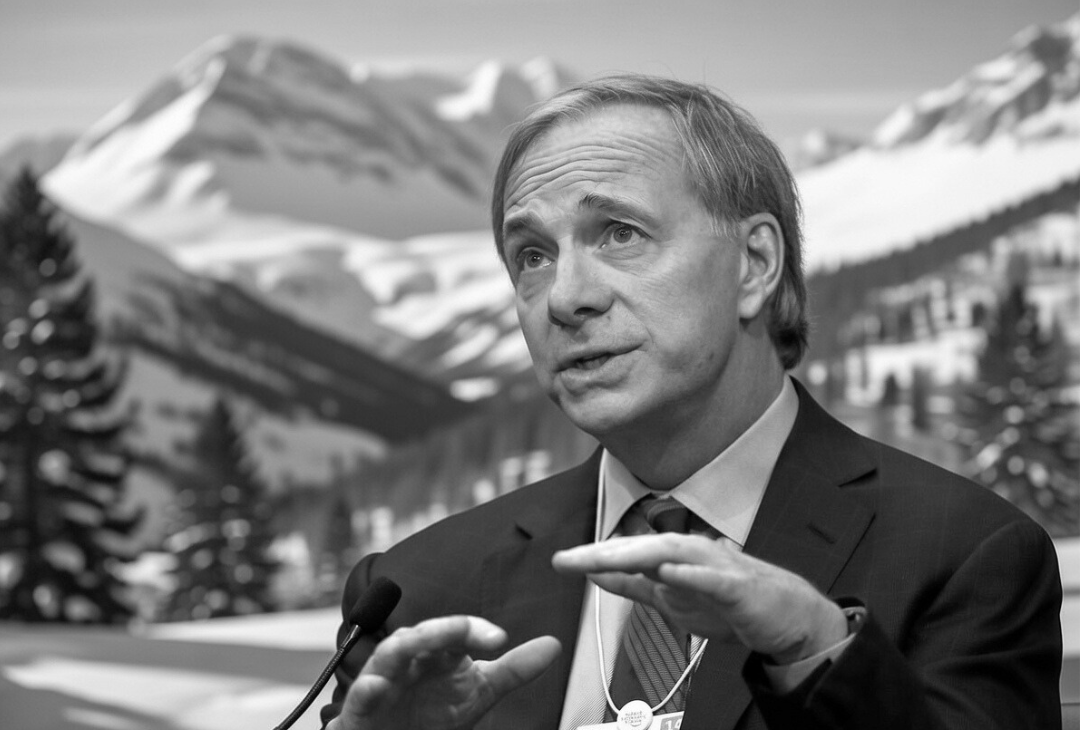“The Future of Gold”, Conference Update

Global Gold is the proud sponsor of the upcoming “The Future of Gold” conference taking place on March 23rd and 24th in Breda, the Netherlands. It’s our first conference here in Europe in the past couple of years, so we are excited to get the chance to meet some of our European clients and readers. But we certainly invite anyone to attend, no matter where you call home. We’ll also have some special opportunities for those of our readers that join us.
In this interview, Scott Schamber talks to Mr. Brecht Arnaert, Editor-in-Chief at MACRO Trends, www.macrotrends.be, the organizer of “The Future of Gold” conference, in which Global Gold will participate and is sponsor. Brecht is a Flemish libertarian who has published many articles and essays and has given numerous interviews and talks regarding monetary policy, the search for the rational foundations of morality, and the defense of individual liberty.
SS: Brecht, Global Gold is excited to be the sponsor of the conference you are organizing for March 24th at the Hotel Princeville in Breda, titled "The Future of Gold". An inspiring title indeed and one that will generate a lot of curiosity from many. But to start us off, for our readers that might not be familiar with your work – and there are probably a few as you are focused in the region of Northwestern Europe - tell me a bit about yourself. Who are you, and how did you get involved with gold?
BA: Thanks for having me, Scott, and I’m really looking forward to working with you at the conference. As a bit of background on myself, I’ve been the chief editor of MACRO Trends, www.macrotrends.be, since 2013. MACRO Trends is made for the responsible investor that likes to make up his own mind: yes, we provide stock tips, but we take it further by analyzing the risks that are attached to all asset classes, as all assets are expressed in money. We feel we provide analysis that some might not want to hear, but we believe you need to have the courage to look through common perceptions to really protect your assets.
Personally, I first got into investing in the summer of 2007, and as one might expect, all I have ever known was crisis, uncertainty and economic troubles. That kind of investing environment makes you value gold: it is a safe haven amidst monetary chaos. But it went beyond that too. Gold also made me think profoundly about the monetary system. So profoundly, in fact, that I started a PhD in Austrian Economics.
SS: How is the PhD going, and what role do you see for gold in the monetary system?
BA: The PhD itself is more about methodology than about applied economic science. The point I am making is that neo-classical economics suffers from a couple of delusions which are the cause of our problems. As an example, I think the most common illusion is that of equilibrium. Neo-classical economists believe that an economy only functions well when it is in equilibrium. Nobody really knows what they mean by that, but it sounds good, and as such, they get away with any policy, as long as they can promote is it as helpful in reaching equilibrium.
That is where I come in. I define equilibrium as that state of the economy where offer and demand meet perfectly and in all cases. That is: between all individuals that participate in the economy. It's an economy where all needs are met and no resources are wasted. It is a perfect image in a seemingly chaotic world.
SS: And you are saying that that is impossible?
BA: There is lots of evidence that points to that conclusion. For nearly 50 years now, central bankers were given free rein to pursue this dream, and all we got in return is inflation, crises and political centralization. When a policy fails, it is never because its premises were wrong, it is because they did not have enough power to run the experiment correctly. This is what Hayek warned against in his book "The Road to Serfdom".
Hayek was part of the Austrian School of Economics, which we could also call the negativist school of economics. Our theoretical current does not just oppose this or that individual economic policy, but it rejects the notion of economic intervention altogether. It opposes the idea that any economic policy can yield positive results to begin with. What you can have are social policies, to redistribute wealth, but economic policies, designed to create value, actually destroy it. That is the essence of our perspective.
SS: How does that tie in to gold and what function do you see for gold?
BA: Well, I must confess I am not an investor in gold because I think it should be the basis of the new monetary system, like it was the basis of the old one. I do not subscribe to the theory that for every monetary unit circulating in the economy there should be a fixed amount of gold.
However, what I do see as the most important function of gold is its status as a reliable and time-tested safe haven. When this monetary system comes crashing down - and it will, that is just a matter of time - then only things that can be touched will have value, and out of these things, only the most liquid will rise significantly. A house can also be touched but since it is a capital good, its price will go down with all the rest. Everything except that which denominates prices, or money which will in that case be gold, silver, and everything that is tradable.
SS: Brecht, I know that we could get into quite a deep discussion on the monetary system, the real value of money, the politics behind it. Let’s stick with economics. Do you think we are going to see a next crisis?
BA: Without a shred of doubt. What goes up, must come down. The inflation that has been created has caused bubbles that are now deflating faster than the central bank can re-inflate the economy. Deflation is nothing else than the evaporation of collateral. The issue of non-performing loans, for example, is a major risk factor that has the potential not just to contribute to the next crisis, but to trigger it. The shocking levels of bad debt and the true scale of the problem are largely kept out of the news, but the amount of people and businesses that cannot pay back their loans, or even the interest on them, is disastrously high.
SS: What is the macro-economic effect of such a scenario?
BA: Well, every time that happens, the money supply dwindles. Banks, that have these loans on their asset side, have to write them off. And as you know, this also means that this write-off has to be financed on the passive side. There, you only have two categories: private capital or external capital. And since the banks are not even close to being capitalized the way they should, their only way out is to borrow more. Not from the public of course, because they don't have money either.
SS: But from the central bank?
BA: Correct. In order to prevent a total collapse of the economy, Draghi has to print billions and billions. Not even to see rising prices, which they then erroneously call inflation. But just to keep the effects of deflation - the evaporation of collateral - in check. And not even that seems to work. After ten years of total power over the monetary policy, inflation refuses to pick up. The reason is clear: the deflationary forces are simply stronger. And they will get stronger still.
SS: Are you are saying that we should not fear inflation, but deflation?
BA: No, not at all. We should fear both. Inflation is the forceful injection of fiat money in the fiduciary money supply. Deflation is the evaporation of fiduciary collateral. Neither of them is good. But since the inflation that has already been created is a thing of the past, the most pressing problem now is indeed deflation. And with that, I do not mean rising prices! That is only a consequence of deflation, a consequence of so many people and businesses going broke.
SS: But if a lot of people go broke, demand falls, and prices fall with it, don’t they?
BA: Yes, but who borrows more: businesses or private individuals? It used to be businesses, which means that it is supply that falls when they fail. That makes prices go up. That is also why consumer credit is sponsored so heavily: as long as demand stays high, even if it is by spending borrowed money, prices remain high, and supply can survive. But this is a no-win game: no economy has ever grown by borrowing and consuming. Only by saving and investing.
SS: Which ultimately leads us back to The Future of Gold conference, coming up on March 24th. Any last comments here, which can then propel us into what can we expect at the conference?
BA: Yes: that analyzing gold as an asset class is not as easy as it seems. The goldbug story is that governments print too much money, which will eventually lead to hyperinflation, which will eventually make gold explode. But it really is a lot more complex than that. Deflationary forces actually prevent prices from rising all too fast, and not every price rise is due to inflation. The incredible increase in taxation is also an important factor. There are many, many things at play here, and at the conference, we will sort all of these factors out.
During the conference, we’ll certainly discuss how gold can protect you as an individual amid this monetary mayhem I’ve referred to. This is actually an ideal time to come together, discuss and analyze what are clearly the markings of gold becoming bullish again, something I know you’ve been writing about too at the Global Gold blog.
SS: In hindsight, the timing of when we started our Blog last spring seems to be spot on in that regard... Brecht, I’ve been with Global Gold for two years now, but I know you’ve been friends with Global Gold for longer than that. Since I’ve only personally known you for two years, is this the first conference of this kind that you are doing?
BA: Actually, I’ve been organizing conferences like this twice a year for the past five years, in the spring and in the fall. The spring conferences normally focus purely on economics, while the fall conference focuses on philosophy. Last October, we had standing room only for our philosophical conference, and that was only in Dutch. For “The Future of Gold”, there is going to be a more international feel. That is why the conference will be in English, as we’ll include speakers from around Europe, including you, Scott. I understand you are both American and Swiss.
SS: I still have a tremendous pride in being American, but after 18 years in Switzerland, I feel like I’ve adapted quite a bit to being more Swiss now than I can say I am American. What does the day look like with this international cast?
BA: First, I want to note that the event starts Saturday evening, March 23rd, where we will have a cocktail reception and meet-and-greet starting at 18:00. On Sunday, March 24th, Mr. Diederik Schmull, former vice-president at Morgan Stanley for more than 25 years, will start us off discussing the future of the dollar which builds the framework for our gold analysis.
Then I’ll share my thoughts geared on the best strategies for limiting counter-party risk through an asset allocation technique which organizes one’s capital in a way to stay as liquid as possible, while at the same time remaining independent from the monetary system.
Prior to lunch, Scott, you’ll introduce our attendees to Global Gold, and why purchase and storage of metals in Switzerland should be part of the ways you help preserve and protect your wealth.
After lunch, fund manager, financial analyst, and trading system developer, Mr. Dimitri Speck, will share his perspective. Mr. Speck is a specialist when it comes to technical analysis of the markets and is very knowledgeable on the price drivers of gold.
Then, Mr. Mark Valek from Incrementum, widely known as one of the best gold analysts in Europe, will be discussing active investment strategies in crypto and gold, and his presentation will focus on the future of the monetary system.
Finally, Mr. Thibaut Lepouttre, a highly educated and well-respected economist from Belgium, not to mention a rising star in the field of resource analysis, will share some of his metals’ stock tips for 2019 and beyond.
This is a world-class group of speakers gathered to talk to a limited number of attendees. We are already 75% to capacity at the time of this interview, so your readers should be sure to act fast if they want to attend. I look forward to meeting them personally if they can join us!
SS: I personally can’t wait to be a part of it. For existing Global Gold clients, we have a special offer regarding the registration fees. We’ll also have a few other surprises for those that are in attendance and know of or are considering investing with Global Gold. Thank you, Brecht, for the interview, and I look forward to seeing you on the 23rd and 24th of March.
If any of our readers want to read more about “The Future of Gold” conference, or if you would like to join us for the special event, be sure to go to the conference website at http://arnaerteconomics.com/thefutureofgold/.
We look forward to seeing you there!




